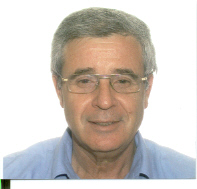
Gad Vitner
Ruppin Academic Center, School of Engineering, Emek - Hefer, Israel
Biography
Gad Vitner holds BSc and MSc degrees in Industrial Engineering and Management from the Technion Israel Institute of Technology and a PhD degree in Industrial and Systems Engineering from USC in LA. He started his career in Ben-Gurion University and after few years joined industry working for many years in various manufacturing and service companies. In 2000, he returned to academy joining the Ruppin Academic Center where he developed a new school of engineering and acted as the School Dean for 6 years. His research interests are: Operations Management mainly in areas: Health Care and Agriculture, Service Engineering, Quality Management and Project Management

